
News & Events
A Queer Sport Has Arrived at NLSIU
January 9, 2023
This article is authored by Exchange Student Tekla Emborg, and was published by the QAMRA Archive at NLSIU.
On a clear Sunday morning, the 20th of November 2022, something historic took place on the sports field at NLS: The first ever official Ultimate Frisbee (ultimate) match was held on NLS grounds. Our newly formed NLS team ‘Hold Court’ played against ‘Doesn’t Matter’ from Jain University. Expectations were intentionally set low on the NLS side given that this was our first time playing another team. However, after a fiery start, Hold Court took the lead and kept that position till the end. Like any other ultimate match in India, the teams gathered in a spirit circle after the match to collectively evaluate the game: observance of the rules, communication on and off field, fair mindedness, self-control and positive attitude.
Two teams play against each other on a rectangular field (roughly the size of a football field) with two end-zones. A 175 gram round plastic disc, known as a frisbee, is passed amongst the offensive team, while the defensive team tries to intercept the disc while it is in the air. The goal is to score by catching the disc in the opponent’s end-zone.
The arrival of ultimate at NLS is significant not only for sports enthusiasts excited by the prospect of a strengthened sports culture but for the queer community as well. Ultimate is a mix-gendered, non-contact, self-refereed team sport that holds potential to open spaces for queer students to engage and compete in sports in ways that many other sports do not.
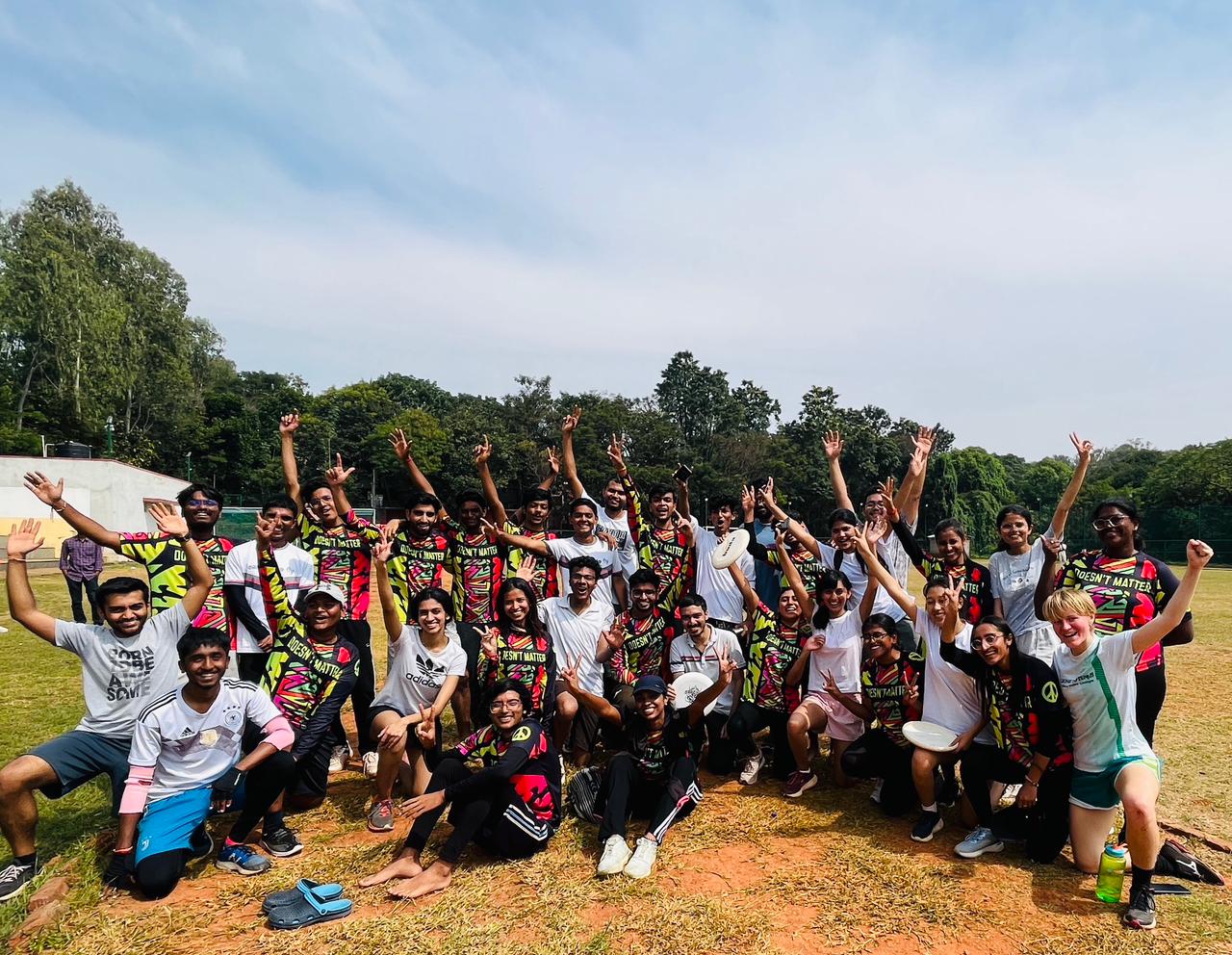
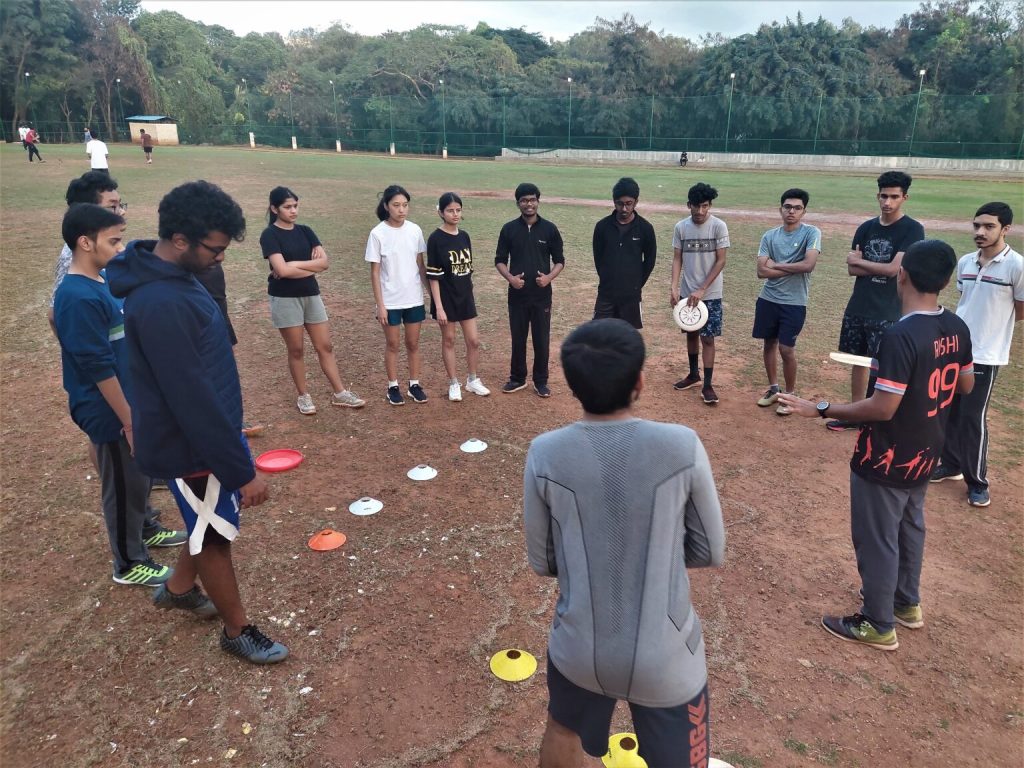 A brief introduction to the quirks of Ultimate
A brief introduction to the quirks of Ultimate
Ultimate has been around in India for over 20 years now. The sport was invented in the 1960s in the USA at a high school in New Jersey and was picked up in India when returning college-students brought it to big cities like Delhi, Chennai, Bangalore and Mumbai around the year 2000. Today about 10,000 people play nation-wide: from the plains of Assam, across the Western Ghats, to the beaches of Chennai.
Three quirky elements of the game deserve special attention:
- Self-refereed: Even at the highest level of international play, players have the final say. The integrity of the game thus relies on each individual player showing fair play and upholding “the spirit of the game”. Teams are evaluated with a numeric score after each game for their spirit by the opposing team, and there will thus be two rankings in any ultimate tournament: the game rank and the spirit rank.
- Non/low-contact: Body contact is considered a foul in Ultimate regardless of whether it was intentional or not. This rule sets high standards for self-control, decreases the amount of aggression on field, limits injuries, and gives space for diversity in physicality; the classic football scenario of small and light players being toppled by bigger and heavier players does not exist in Ultimate.
- Mix-gendered: In mixed divisions, all points are played with an alternating ratio of 4-to-3 female-to-male-identifying players. This means that mix-teams must have a roughly even number of male and female players. The Ultimate Players Association of India (UPAI) has, from its inception, centered its tournaments and structures around mix-gendered ultimate rather than single-gendered ultimate (which are the dominant divisions in USA and Canada).1 This structure incentivises teams to encourage (cis)women to join the sport and has been seen as empowering (cis)women within the sport.
Ultimate as an effective tool for social change in India
Ultimate is used as a central tool in numerous NGOs across India with different and intersecting priorities such as empowering women, supporting underprivileged communities, youth advancement etc. One example is the Chennai–based NGO One All that teaches value education to youth through ultimate frisbee, for the three above-mentioned characteristics of the sport. These make the sport ideal for working with youth on topics like feeling, friendship, gender equity, attraction, identity, etc. The Ant is another example of an NGO utilising Ultimate. It has been promoting Ultimate frisbee in Assam and Nagaland since 2015. Currently more than 50 teams and 3500 boys and girls play Ultimate in Assam and Nagaland: “Apart from helping young people keep physically fit, the sport has shown huge potential for social transformation by promoting gender equality and self-discipline, facilitating skills of communication and non-violent negotiation”. These are only two from an ongoing list of examples2
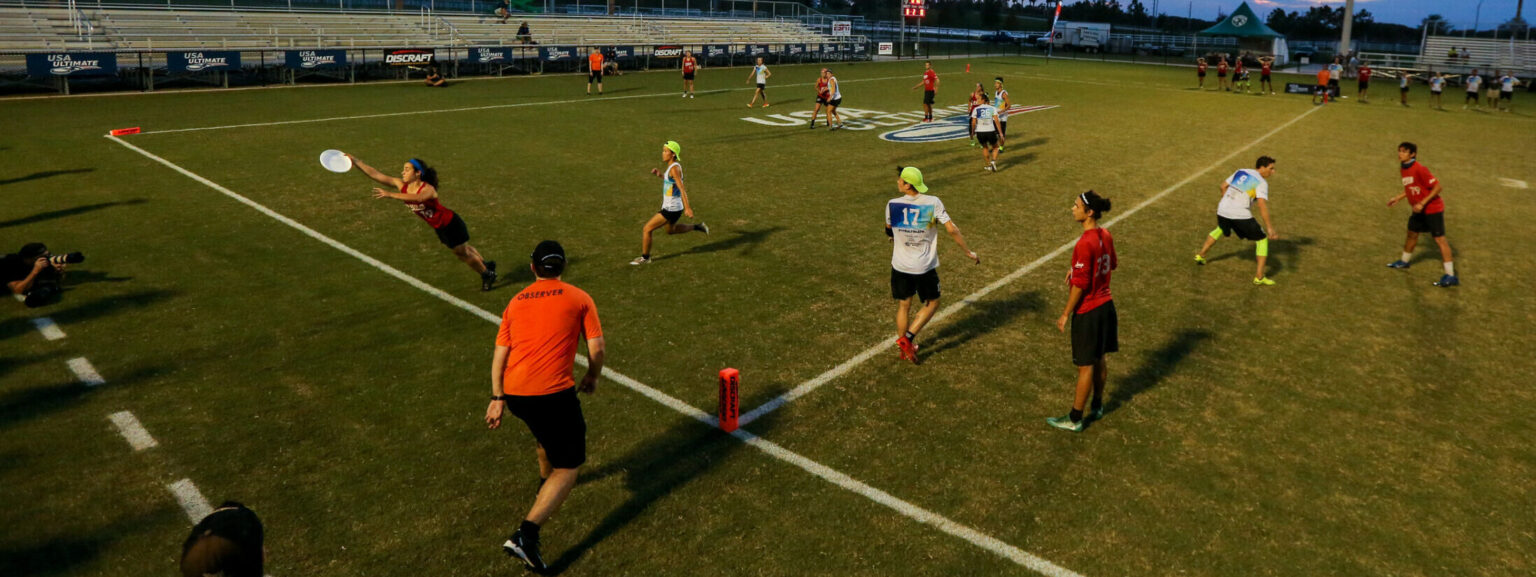
The potential of a queer sport
This track-record of prompting social change across India stimulates questions of the role ultimate could play in providing safe and supportive sport spaces for queer communities. Rasika Gopalakrishnan is one of the co-creators of the People’s Ultimate League (PUL), India’s first league dedicated to encouraging non-binary and transgender players. She explains that ultimate has played an important role in sensitising (cis)men towards the challenges and hurdles faced by (cis)women and facilitating greater understanding between players. PUL aims to bridge gaps in a similar manner between cis communities and non-cis communities by broadening perspectives and promoting empathy and understanding. This is important in creating safe spaces for players to express and embody their gender identities. While PUL has had difficulties getting off the ground due to the Covid-19 pandemic, the rationale and concept provide building blocks for other teams and Ultimate Associations across India.
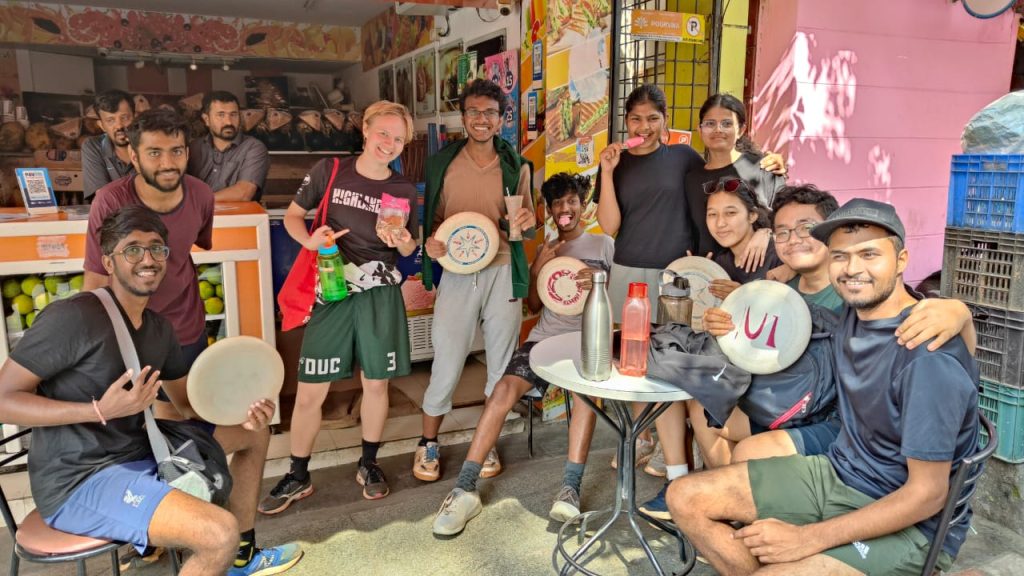
Ultimate communities across the world are increasingly focused on LGBTQ+ perspectives with initiatives addressing both structural and cultural elements of the sport. An important structural question impacting the inclusivity of the sport concerns eligibility for transgender and non-binary players to compete in the women’s and mixed leagues. USA Ultimate has embraced self-identification, by adopting a Gender Inclusion Policy in 2020 enabling athletes of all gender identities to freely participate in the division in which they feel most comfortable and safe, based on their gender identity. The policy emphasizes that players of all genders should be recognized, respected and included at all levels of the sport. Another example is the Windmill Tournament in the Netherlands – a highly competitive ultimate frisbee club tournament in Europe with 80 teams from across the world participating. Windmill 2022 allowed players to self-identify to compete as female-identifying or male-identifying players.
Initiatives aimed at fostering LGBTQ+ inclusive cultures of ultimate communities are also cropping up. For example, at Windmill 2022 the Rainbow Brigade, a team of only queer players from all over the world, came together to compete and raise awareness of queer players in Ultimate. During the 3-day tournament, the Rainbow Brigade facilitated an ‘equity talk’ where 100+ players from across teams engaged with topics of queer participation in Ultimate, sharing best practices from different teams and countries and discussed how to nurture sports cultures supportive of LGBTQ+ people.
The possibilities ahead – Hold Queer Court
With an appreciation of the history of Ultimate Frisbee in India and developments on queer perspectives across ultimate communities, the arrival of an ultimate team at NLS is a cause for celebration. In the early days of establishing a stable team on campus, the focus might be on learning how to throw a disc and moving on the field. However, if the sport can find root in the hectic rhythm of student life at NLS there is potential: for glorious sport experiences, and also for bringing about an inclusive and supportive sports space that embraces and celebrates differences.
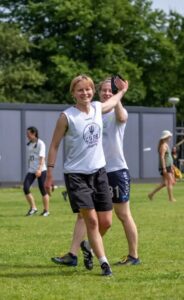
Author credit:
Tekla Emborg is a female identifying ultimate-player and 3rd year exchange student from Denmark at National Law School of India University. She started playing ultimate frisbee 5 years ago at a high school in Maharashtra and has played and coached across India and Europe since.
